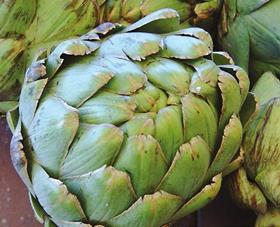
Research by a leading cancer prevention charity claims to have unearthed a link between eating a plant-based diet and breast cancer survival.
The global review of cancer prevention research by World Cancer Research Fund International’s Continuous Update Project (CUP), found indications of links between breast cancer survival and a healthy body weight, being physically active, eating foods containing fibre and soy, and a lower intake of fat, particularly saturated fat.
The Continuous Update Project is the most rigorous, in-depth and systematic review to-date of worldwide research into breast cancer survivors and the lifestyle factors affecting their survival. It reviewed 85 separate studies of 164,416 women, and highlights growing evidence of links between a healthy BMI, physical activity, diet and cancer survival.
Despite this, World Cancer Research Fund International’s expert panel of scientists believes the available scientific evidence is still not strong enough to give concrete recommendations specifically to survivors.
Dr Kate Allen, executive director of science and public affairs at World Cancer Research Fund International, said: “Although it is difficult to make specific recommendations, the research shows some evidence of links between cancer survival, maintaining a healthy body weight, being physically active and having a healthy diet.
“The research from the Continuous Update Project indicates that women who have a healthy BMI and are physically active, both before and after they are diagnosed, have a better chance of surviving if they are diagnosed with breast cancer. But we need to rule out other factors, such as types of treatment, that might explain these findings, so our knowledge of the exact causal links between diet, weight and physical activity and breast cancer survival needs to improve.”
Having a healthy BMI helps to reduce risk of developing eight cancers including post-menopausal breast cancer, so World Cancer Research Fund International recommends checking your BMI regularly to see if you are a healthy weight.
The study also found some evidence that women who eat more foods containing fibre and soy have a lower risk of dying from the disease. There are also indications that people eating a diet high in fat and saturated fat before developing the disease may have a higher risk of dying following a diagnosis of breast cancer, although these findings are still not strong enough to base specific cancer survival recommendations on.
In 2012, 50,748 women were diagnosed with breast cancer in the UK and increasing numbers of women are surviving as methods of diagnosis and treatment improve. More than half a million (550,000) UK women are currently breast cancer survivors.
Dr Teresa Norat, from Imperial College London, and whose team assesses and collates the research for World Cancer Research Fund International, said: “Understanding the science behind the links between diet and lifestyle and surviving breast cancer is still a relatively new area of research. There are several possible reasons for the links we are seeing into diet, weight and physical activity, and breast cancer survivorship.'
The CUP monitors and analyses global research and draws conclusions on how lifestyle factors such as diet, weight and physical activity affect the chance of developing cancer and surviving it.






No comments yet